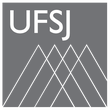Banca de QUALIFICAÇÃO: JULIANA ABREU DE FREITAS
Uma banca de QUALIFICAÇÃO de MESTRADO foi cadastrada pelo programa.STUDENT : JULIANA ABREU DE FREITAS
DATE: 16/12/2022
TIME: 19:00
LOCAL: meet.google.com/syn-xfeh-sux
TITLE:
Evaluation of cyanide effluent treatments from the metallurgical process of golden ore processing
KEY WORDS:
cyanide; oxidation; effluent treatment; Fenton process; activated carbon.
PAGES: 40
BIG AREA: Engenharias
AREA: Engenharia Química
SUBÁREA: Processos Industriais de Engenharia Química
SPECIALTY: Processos Inorgânicos
SUMMARY:
Gold ore extraction process goes through different stages, from mineral research to physicalchemical processing stages. Large volumes of material are processed and, therefore, the volume
of waste generated is also high. There are different types of disposal for waste. A sustainable
way of disposal consists in using filtering processes to separate solid and liquid, disposing the
solid part in piles while the effluent is reused in the process. However, this effluent may contain
residual contaminants that may interfere in the hydrometallurgical process, besides being
dangerous for the environment. Hence, it is important to study and explore alternatives for
removing contaminants, especially cyanide, which is used in large volumes in the leaching
process. The scope of this work was the evaluation of cyanide removal from the effluent
generated after the gold ore processing. The results of historical analysis of cyanide present in
the effluent storage tank, which is exposed to solar radiation and rain, was analyzed. In addition,
chemical routes of treatment by oxidation were studied, evaluating first oxidation by hydrogen
peroxide, then the Fenton process, which uses hydrogen peroxide in the presence of iron ions.
It has been proven that these processes are capable of removing cyanide at low levels, even
lower than what is necessary for the disposal of the effluent in a water body. Thus, the dosage
of chemicals was evaluated to reduce the operating costs of this decontamination process. The
use of activated carbon was also evaluated. The results of the studies were replicated on an
industrial scale and indicated that the evaluated routes are promising for the implementation of
a definitive process to reduce effluent contaminants.
BANKING MEMBERS:
Presidente - 1759475 - JORGE DAVID ALGUIAR BELLIDO
Interna - 1810303 - PATRICIA DA LUZ MESQUITA
Externo ao Programa - 1280597 - VAGNER FERNANDES KNUPP



